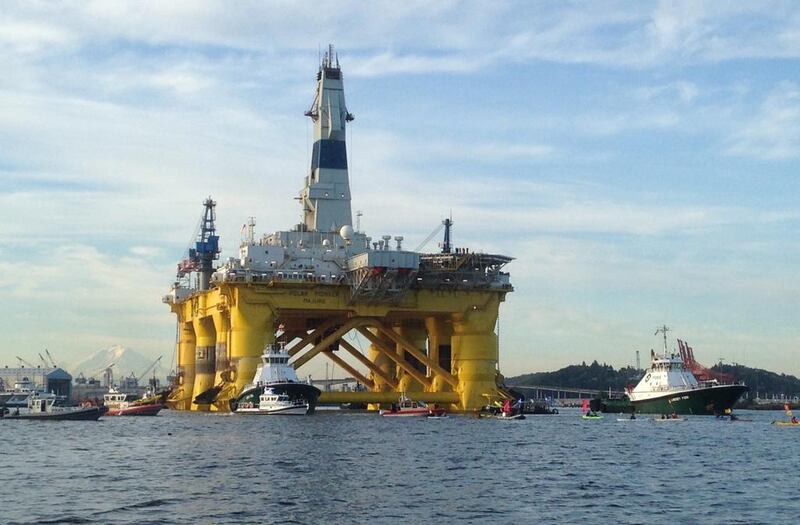Exxon Mobil and Royal Dutch Shell last week reported their lowest quarterly profit since 1999 and 2005, respectively. Chevron’s third straight loss marked the longest slump in 27 years, and BP lodged its lowest refining margins in six years.
Welcome to year two of a supply overhang so persistent that it is upsetting industry expectations that the market would return to a state of balance between production and demand. It has left analysts befuddled and investors running to the doorways.
Exxon missed analyst estimates by 23 cents a share and its shares fell as much as 4.5 per cent on Friday before recouping some of that decline. Chevron posted a surprise US$1.4 billion loss after booking $2.8bn in write-downs. The company’s per-share loss of 78 cents was in stark contrast to the 19- to 41-cent gains expected by analysts. BP and Shell registered similarly gloomy outcomes.
“There’s just no place for the supermajors to hide,” said Brian Youngberg, an analyst at Edward Jones. “Oil prices, natural gas, refining – it all looks very bad right now.”
Crude prices, though they rallied 25 per cent in the second quarter when compared to the first quarter, were still down from year-ago levels amid a global glut in the $1.5 trillion-a-year market. And this month has brought no relief – the price of Brent crude is down 14.5 per cent for the month, including 7 per cent last week alone. With diesel and petrol prices also having slumped, the companies were deprived of the tempering effect that oil refining typically provides during times of low prices.
In London, North Sea Brent for September closed on Friday at $42.46, while WTI was at $41.60.
Given the plunge in crude and natural gas markets, “you cannot recover, no matter how efficient you are”, said Fadel Gheit, an analyst at Oppenheimer. “The industry cannot survive on current oil prices.”
Shell reported its weakest quarterly result in 11 years and missed analysts’ estimates by more than $1bn.
BP said earnings tumbled 45 per cent amid the lowest refining margins for the second quarter since 2010. US margins, based on futures contracts, plunged 30 per cent to a second-quarter average of $17.12 a barrel from $24.42 a year earlier.
BP’s profit, adjusted for one-time items and inventory changes, dropped to $720 million from $1.3bn a year earlier, the company said on July 26. That missed the $819m average estimate.
Exxon, the world’s biggest oil explorer by market value, said wildfires that ravaged the oil-sands region of Western Canada, along with ageing wells, reduced output. Its US oil and natural gas wells lost an average of $5.6m a day during the quarter.
At Shell, the largest oil producer after Exxon, profit adjusted for one-time items and inventory changes sank 72 per cent from a year earlier to $1bn, less than half the $2.1bn analysts had expected. Shell’s chief executive Ben Van Beurden, who this year completed the record purchase of BG, has vowed to boost savings from the acquisition following the two-year slump in crude.
Chevron’s chief executive John Watson said his company continues to adjust to lower prices. He has responded to the market-driven cash squeeze by shrinking drilling programs, writing off discoveries that were too costly to develop at current prices and firing one-tenth of the workforce. The company is seeking to bolster its balance sheet by raising $5bn to $10bn from asset sales.
Despite the rout, and credit-rating cuts, Chevron on July 5 gave the green light to a $36.8bn expansion of the Tengiz oilfield in Kazakhstan. This week, the company committed to distribute a $1.07-a-share dividend that will eat up about $2bn in cash.
The Exxon chief executive Rex Tillerson has been looking beyond the current downturn in energy markets to augment the company’s gas and oil portfolios from the South Pacific to Africa. The company also is ploughing money into expanding refining and chemical complexes from Singapore to the Netherlands, betting that regional demand for products used in automobile tyres, engine oil and plastics will grow over the long term.
business@thenational.ae
Follow The National's Business section on Twitter





